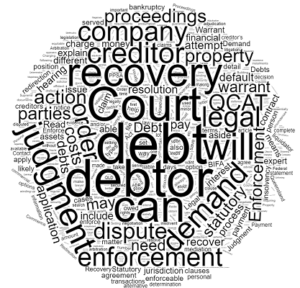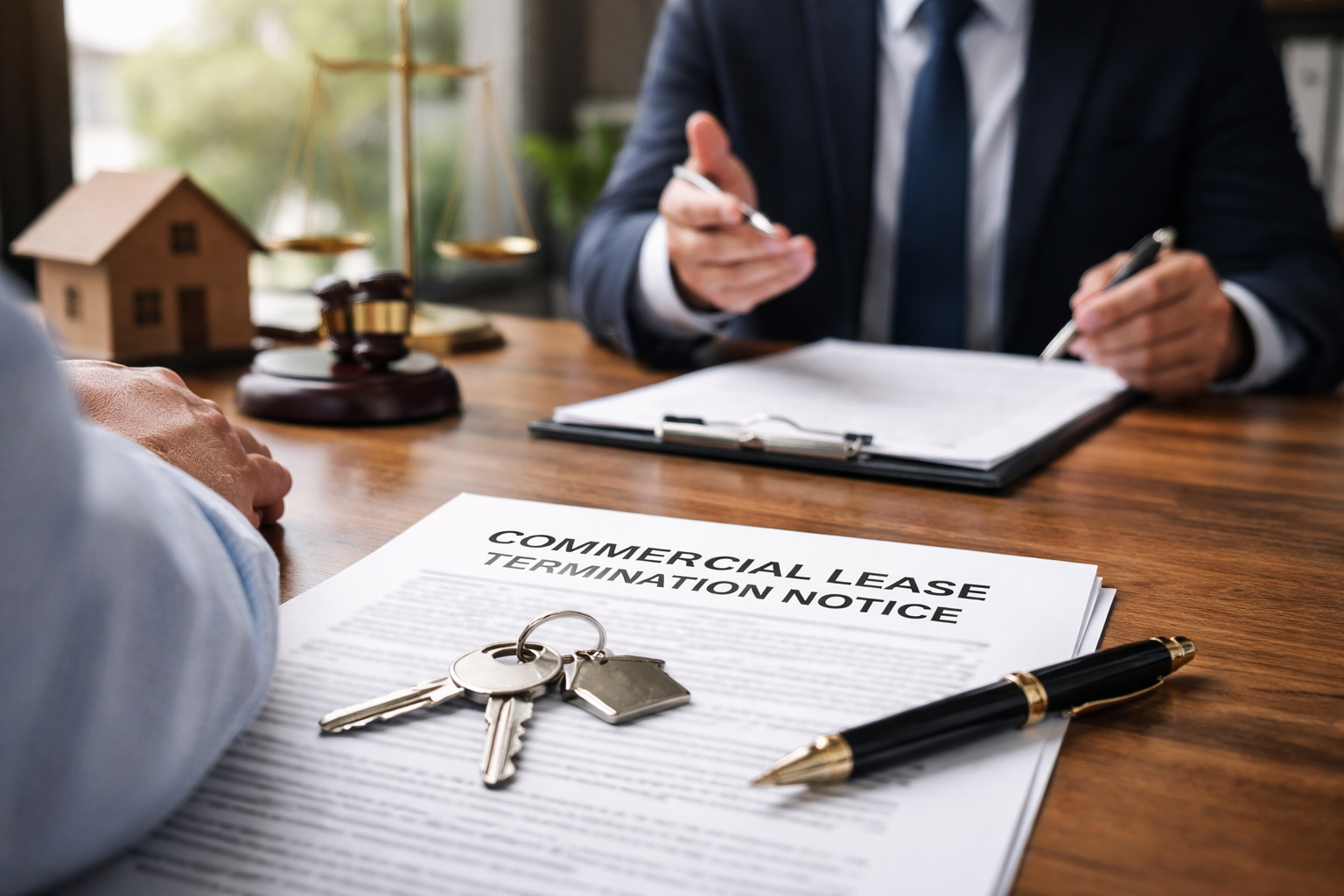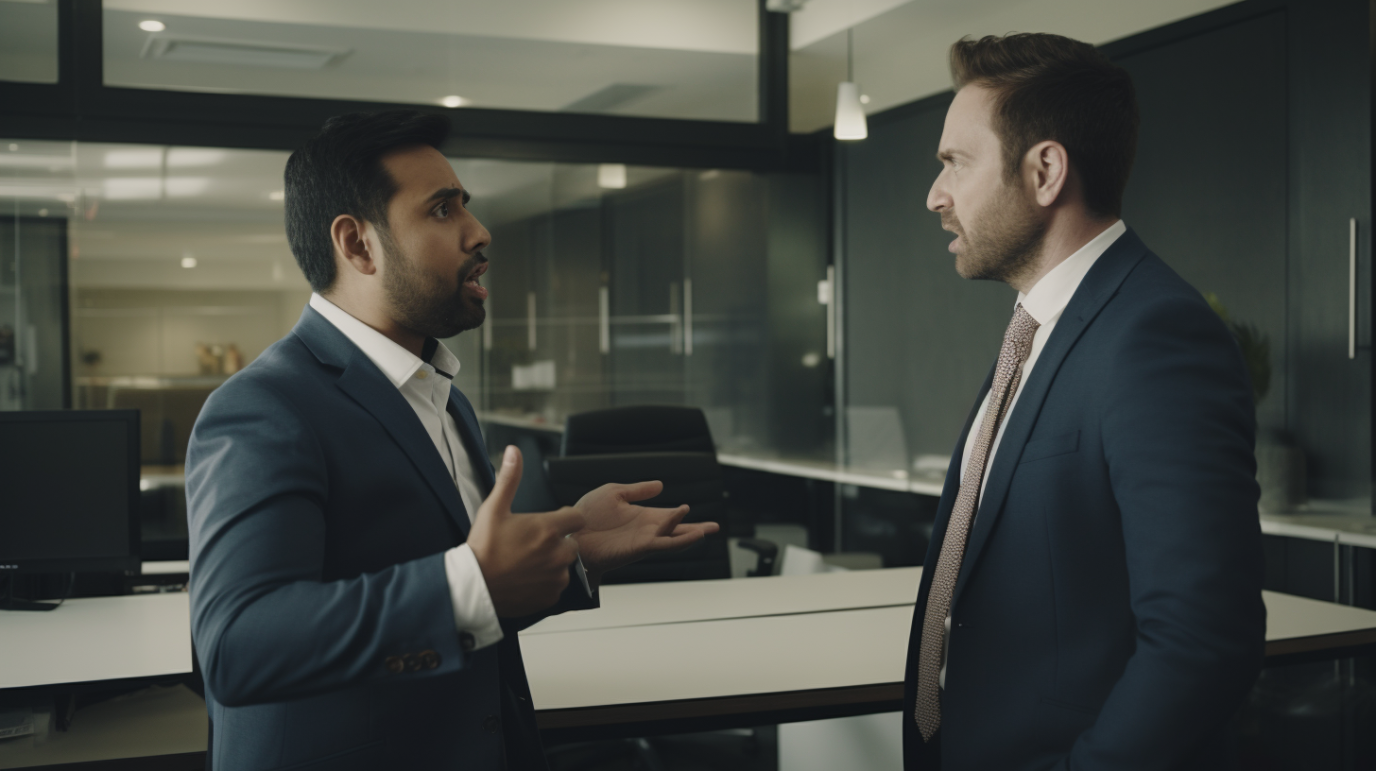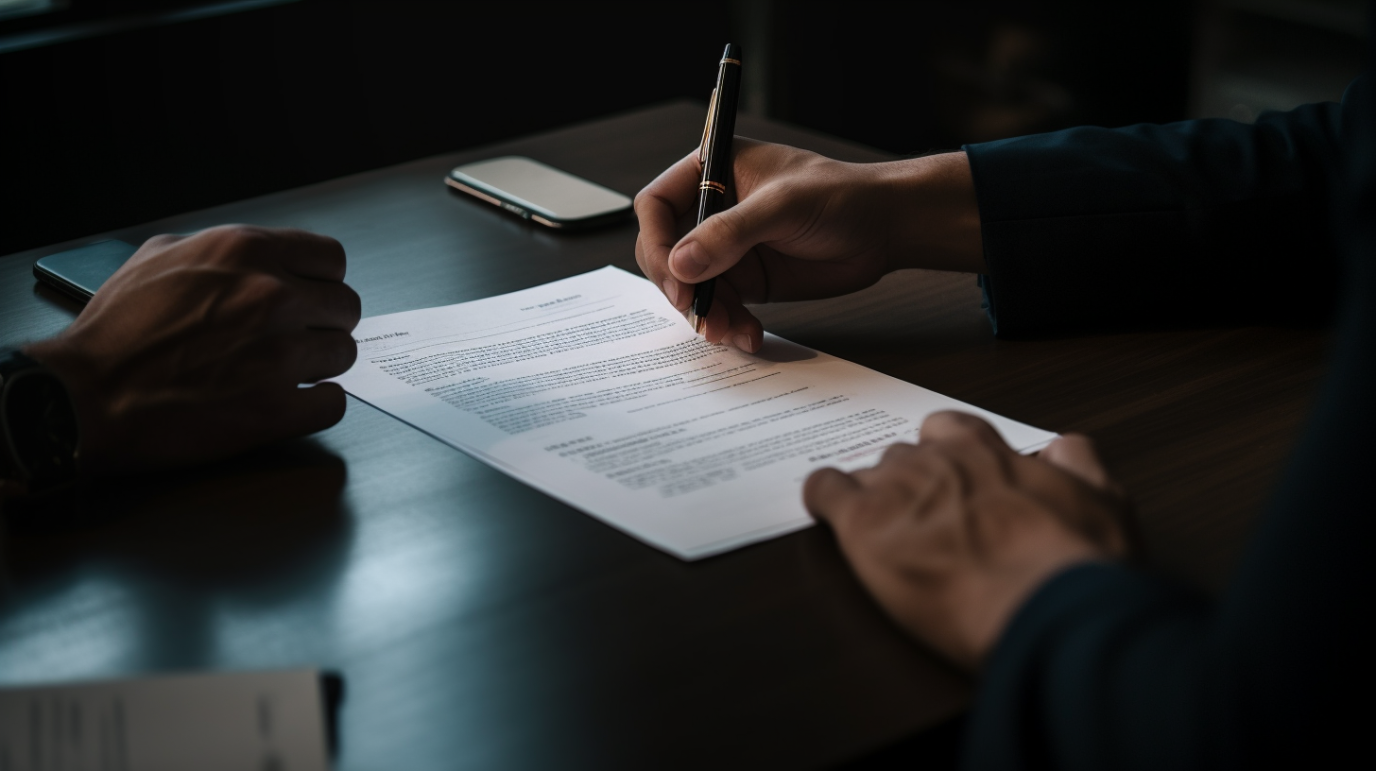Table of Contents
Toggle- The Debt in Legal Proceedings for Debt Recovery
- The Contract in Legal Proceedings for Debt Recovery
- Start Legal Proceedings for Debt Recovery
- Letter of demand
- Alternative Dispute Resolution (ADR)
- Legal Proceedings for Debt Recovery
- Enforcement of the Judgment or Money Order
- Enforcing the Judgment in Legal Proceedings for Debt Recovery
- Issuing an Enforcement Warrant in Legal Proceedings for Debt Recovery
- Enforce the Judgment Debt with Insolvency
- Legal Proceedings for Debt Recovery Process
- Legal Proceedings for Debt Recovery FAQ
- Who is Liable for Joint Debts?
- Am I Liable for my Partner’s Debts?
- How do I find out if a Money Order has been Made Against Me?
- What do I do if a Money Order has been Made Against Me?
- How do I Negotiate a Payment Arrangement?
- Do I need Legal Advice re. legal proceedings for debt recovery?
- What should be the first step in debt recovery?
- When should legal action be considered for debt recovery?
- What jurisdictions apply to different amounts of debt in Queensland?
- Can industry-specific laws affect legal proceedings for debt recovery?
- What are some effective contract clauses for debt recovery?
- What is a charging clause in legal proceedings for debt recovery?
- What does a personal guarantee from a director mean?
- What is PPSA charging clause in legal proceedings for debt recovery?
- What is alternative dispute resolution (ADR)?
- What is a Statement of Claim in legal proceedings for debt recovery?
- What is a Notice of Intention to Defend?
- What happens if the debtor does not respond within 28 days?
- What is the role of a default judgment in legal proceedings for debt recovery?
- What happens during a court hearing for debt recovery?
- Can a court order be appealed?
- How can a creditor enforce a court order?
- What is an enforcement warrant?
- What is garnishing of wages after legal proceedings for debt recovery?
- Can a debtor enter into a payment plan after a court order?
- What should I do if I need more advice on debt recovery legal proceedings?
 Legal proceedings for debt recovery include:
Legal proceedings for debt recovery include:
- Trying to resolve the debt dispute without litigation;
- Starting legal proceedings for debt recovery;
- Obtaining a judgment or enforceable money order; and
- Enforcing that judgment over the property of the debtor.
However, debt recovery action in Court or QCAT should be a last resort. Legal proceedings for debt recovery can be costly and time consuming.
But in a lot of cases when the debtor is being unreasonable then a creditor may have no option but to commence debt recovery action.
In this article our litigation lawyers will explain the option available in debt recovery matters, alternative dispute resolution options, options for legal proceedings for debt recovery, enforcement options, and attempt to explain debt recovery law and debt recovery legislation available in Queensland.
If you need to start legal proceedings for debt recovery then it is important to get it right and you should contact a lawyer
DEDICATED TEAM – COMMERCIALLY MINDED – PROVEN RESULTS
OR CALL: 1300 545 133 FOR A PHONE CONSULTATION
The Debt in Legal Proceedings for Debt Recovery
The first thing to consider when thinking about legal action for debt recovery is the debt.
When commencing legal action for debt recovery, different rules and jurisdictions apply to different amounts of debt, which allow for different types of debt recovery action.
Legal Proceedings for Debt Recovery Jurisdiction
In Queensland, the jurisdiction of QCAT and the Courts are:
- Debts up to $25,000 – QCAT Minor Civil Disputes;
- Debts up to $150,000 – Magistrates Court;
- Debts from $150,000 to $750,000 – District Court; and
- Debts over $750,000 – Supreme Court.
Each of the above have both advantages and disadvantages, so it is important to speak to your lawyer before commencing legal action for debt recovery.
Legislation
Different industries have different pieces debt recovery legislation used for the recovery of debts and can be treated differently, for example:
- Building and construction debts – The Building Industry Fairness (Security of Payment) Act 2017 (QLD) can be used to issue payment claims and subcontractors’ charges.
- Body Corporate debts – The Body Corporate and Community Management Act 1997 (QLD) can be used along with whichever module your scheme falls under, to recover unpaid body corporate levies.
- Company Debts – The Corporations Act 2001 (CTH) can be used to recover debts from a company by issuing creditor’s statutory demands and winding up the company in insolvency.
Plus, there is other industry-specific legislation, so it important to ensure that you fully understand your rights and liabilities under debt recovery law in relation to debt recovery in certain industries.
The Contract in Legal Proceedings for Debt Recovery
Next, the contract has some important factors to consider when thinking about legal proceedings for debt recovery. Different contract clauses can make it easier to recover your debt, and also can help you to recover more costs and outlays.
Some good contract clauses include:
- Charging clauses or other security;
- Personal guarantees from directors;
- PPSA charging clauses; and
- Default terms clauses.
I will explain these in more detail below.
Charging Clauses or other Security
A charging clause in the contract requires the debtor to give security for the debt with an equitable interest in real property or land elevating the creditor to the status of a secured creditor.
A charge over property is essentially a guarantee that in the event of a default, the creditor’s equitable interest in the debtor’s real property is realised and the debtor can take steps to satisfy the debt as equitable mortgagee.
This charge is a charge over company property (if any) but can also be a charge over the director’s personal property.
Personal Guarantees from Directors
A personal guarantee from a director of the debtor company means that in the event of a default by the company, the director will be personally liable to pay the debt.
This clause is a must if you are offering credit to a corporate client for a number of reasons.
First, it means that if the company trades as a $2 shell and have no assets to satisfy your debt, then a creditor can attack the director’s personal assets.
You can also charge property with the Personal Property Securities Act 2009 (Cth) (“PPSA”)
PPSA Charging Clauses
The PPSA allows a creditor to charge (secure) the debt over the personal property of the debtor. This is distinct from real property or land as mentioned above.
A secured creditor, secured with a charge over the personal property is allowed to seize collateral, by any method permitted by law, if the debtor is in default under the security agreement.
Typically, a car finance company will charge the car. Then upon default of the finance agreement they are able to take possession of the vehicle.
Some challenges can arise from a PPSA charge, so it important to get your contract drafted correctly.
Default Terms Clauses
Lastly, some carefully drafted contract terms will allow you to recover more in costs and interest from the debtor. Some good terms to consider are:
- Costs – Usually the costs of legal proceedings are scale costs and don’t cover the actual legal costs of debt recovery action. However, carefully drafted clauses allowing for legal costs can allow a creditor to recover more costs in relation to debt recovery and collection.
- Interest – The legislative allowance for interest in Queensland is 4% above the cash rate at the Reserve Bank of Australia. So, if the cash rate is 1.25% then you are only able to claim 5.25% interest. An interest clause will allow you to recover more in interest in the event of a default.
- Liquidated Damages – in some instances you will be able to claim liquidated damages, meaning a daily fixed amount (say $50) for every day that the debtor is in default. Care must be taken to ensure that this amount is a genuine pre-estimate od damages, and not a penalty for default.
If you need new or updated contract terms then contact us.
Once you have given thought to the parties, the debt, and the contract, you are now in a better position to commence legal proceedings for debt recovery.
Start Legal Proceedings for Debt Recovery
A typical debt recovery scenario should look something like this:
- Send a letter of demand;
- Try alternative dispute resolution;
- Debt recovery action in Court or QCAT;
- Enforcement of the judgment or money order.
We will explain this process in more detail below.
Letter of demand
In a lot of instances, a debt dispute can be resolved by a well-worded letter of demand.
A letter of demand should clearly identify the debt, outline the debtor’s obligation to pay, and clearly set-out the creditor’s rights according to debt recovery lawyers.
Once a debtor realises that a lawyer is involved, and that they may have to pay thousands of extra dollars in legal costs and interest, then it may incentivise them to pay.
Read about letters of demand here – Letter of Demand
If a letter of demand doesn’t work, then another non-legal option would be to attempt alternative dispute resolution.
Alternative Dispute Resolution (ADR)
There are a number of different alternative dispute resolution methods, including:
- Negotiation with the debtor;
- Attending a mediation with the debtor;
- Attend an expert arbitration with the debtor;
- Determination by an expert;
- BIFA adjudication; and/or
- Conciliation
Each of the above can apply in different circumstances and may not be suitable for all debts.
We will explain in more detail below.
Negotiation in Legal Proceedings for Debt Recovery
Although it sounds counter-intuitive, good litigation solicitors do all we can to not litigate unless we absolutely have to.
The first skill in ADR is trying to negotiate with the debtor or the debtor’s solicitor, in an attempt to reach a resolution without having to legal proceedings for debt recovery.
As with any negotiation we need to have leverage. A good negotiator has ways of successfully getting leverage to increase the chances of a swift and just resolution to debt disputes.
Contact our lawyers to help and assist with negotiation payment of a debt.
If the negotiations break down, then the parties could agree to attend a mediation.
Mediation Legal in Proceedings for Debt Recovery
A mediator is a third-party, usually a barrister, who guides the parties through a structured process in an attempt for the parties to reach a resolution.
The end result of a mediation is for the parties to sign a legally enforceable deed of settlement, which will outline the steps required by each party to finalise the dispute.
The deed will also include clauses upon breach by either party and will likely foreshadow debt recovery action upon default.
Attending a mediation can save considerable time, legal fees and court costs.
Arbitration in Legal Proceedings for Debt Recovery
Arbitration is a type of ADR outside of the courts which allows the parties to obtain a legally binding decision.
Arbitration is only available in certain circumstances and in certain types of matter and is not available to all debt recovery or commercial disputes. Further, the parties will have to agree to arbitration and agree to be bound by the decision.
Section 1 of the Commercial Arbitration Act 2013 (QLD) defines the types of disputes to include:
Relationships of a commercial nature include, but are not limited to, the following transactions – any trade transaction for the supply or exchange of goods or services; distribution agreement; commercial representation or agency; factoring; leasing; construction of works; consulting; engineering; licensing; investment; financing; banking; insurance; exploitation agreement or concession; joint venture and other forms of industrial or business cooperation; carriage of goods or passengers by air, sea, rail or road.
During the arbitration, the parties present their arguments and evidence to an independent arbitrator who essentially acts as a judge and creates a binding determination, called an award.
Expert Determination in Legal Proceedings for Debt Recovery
Similar to arbitration, expert determination is a process in which the parties in dispute agree to have their dispute determined by an independent third-party, or expert.
In most cases the expert is a person with technical experience, such as an engineer, construction expert, or accountant, etc.
Parties to disputed commercial contracts will sometimes include a clause requiring the parties in dispute to refer dispute to an expert for determination rather than going to Court.
Alternatively, the parties in dispute may agree to enter into a stand-alone expert determination agreement to save the expense and time of going to Court.
Again, the determination is binding on the parties.
BIFA Adjudication
If a dispute arises under the Building Industry Fairness (Security of Payment) Act 2017 (QLD) (“BIFA”) then BIFA has the option of having the building and construction dispute determined by an adjudicator.
A BIFA adjudication is a fast and cost-effective way of resolving building and construction disputes without resorting to the Court.
Once a decision has been made, the adjudicator will issue an adjudication certificate which can be registered in the Court and enforced as if it were a decision of that Court.
Time Limits
Very strict time limits apply to BIFA claims, so it is vital that you act now to protect your rights.
Read more about making payment claims – How to Make a BIFA Payment Claim
Read more about making adjudication applications – How to Make an Adjudication Application.
You can also seek a judicial review of the adjudication decision in the Court.
Conciliation
Debt recovery claims for unpaid wages and entitlements may require the parties to attend a conciliation.
This process helps the parties in dispute to identify the salient issues and assists with identifying the terms of settlement in an attempt to reach a resolution.
The terms of the agreement are then recorded in a legally enforceable deed of settlement.
The conciliator does not act as a judge for the parties.
Get Help with Dispute Resolution
If you need help and assistance with any of the alternative dispute resolution processes above, then please get in touch with our solicitors.
Useful link to the Queensland Law Society – https://www.qls.com.au/For_the_community/Alternative_Dispute_Resolution
If the matter fails to resolve by way of ADR, then a creditor may have not any choice but to take legal action to recover the debt.
Legal Proceedings for Debt Recovery
The most common ways to start legal proceedings for debt recovery are:
- Commence debt recovery action in QCAT;
- Commence debt recovery action in the Court with jurisdiction;
- Serve the debtor company with a statutory demand.
We will explain these and the QCAT procedures & Court procedures in more detail below.
Commence Debt Recovery Action in QCAT
The Queensland Civil and Administrative Tribunal (“QCAT”) is essentially Queensland’s “small claims Court”.
QCAT is a no-costs jurisdiction, so you will not be able to claim your legal costs, save for a few legislated items except in exceptional circumstances, but this is at the discretion of the tribunal.
The pros of commencing proceedings in QCAT are:
- It is a lot less expensive than commencing in the Court;
- The process can be a lot quicker than the Court;
- QCAT is designed for self-represented people.
The cons of commencing proceedings in QCAT are:
- The minor debt jurisdiction is mostly a no costs jurisdiction. This means that you will not be able to recover your costs save for a few designated items;
- Legal representatives do not have an automatic right of appearance. This means that if you want us to appear at a QCAT hearing, you will need the leave of the tribunal, which is not always given.
QCAT has strict requirements in relation to what types of cases they hear, so I would need more information from you to be able to advise you if QCAT has jurisdiction.
QCAT Procedures
If a creditor is owed a debt of $25,000 or less, then they can apply to QCAT for minor civil dispute resolution.
Debt recovery action is started in QCAT by making an application for minor civil dispute.
After the application is served on the debtor, they have 28 days to file a response to a minor civil dispute.
If they don’t file a response, then the creditor can obtain a decision in default.
The QCAT member might also order that the matter proceed by way of mediation. If the matter does not settle at the mediation, then the legal proceedings for debt recovery in QCAT will proceed to a hearing.
If you want to claim costs, or you require a more judicial process, then you can commence legal action in the Court with jurisdiction.
Commence Debt Recovery Action in the Court
We can commence legal action in the Court with jurisdiction.
An action for debt recovery is commenced by claim and statement of claim. The cause of action will usually be a breach of contract (amongst others).
Once a claim and statement of claim is filed and served on the debtor, they have 28 days to file and serve a defence.
If they do nothing, then we can make an application to the Court to get default judgment, which is a Court order ordering the defendant (debtor) to pay the claimed amount, being the outstanding fees, costs and interest at a rate of 4% above the RBA Cash Rate, from when the debt was due and payable.
Court Procedures
If the debtor does file a defence (and counterclaim – if any), then we will need to draft and serve a reply to the defence and an answer to the counterclaim (if needed).
Based upon the strength of the respective cases and evidence, the matter will likely resolve by negotiation, or by one party getting summary judgment.
It is unusual for a debt recovery matter to proceed all the way to a trial.
However, if both parties object to any resolution in the proceeding, then ultimately the matter will go to a trial for a Magistrate or Judge to decide.
If you have a debt owed by a company, then you might be able to serve a creditor’s statutory demand for payment.
Serve the Debtor Company with a Statutory Demand
If an insolvent debtor company has assets, then a creditor can serve that company with a statutory demand for payment.
Failure to comply with a statutory demand allows a creditor to commence proceedings to wind up the debtor company.
All assets, bank accounts etc. are frozen and realised to satisfy the debts owed to the creditors.
The liquidator is also able to void certain transactions, or in some cases make the director(s) personally liable for the debt.
If the debtor company does not respond, then it is presumed to be insolvent and a creditor can take steps to wind it up in insolvency.
Once served, the debtor company will have 21 days to do any of the following:
- Pay the amount claimed;
- Secure or compound for the debt;
- Request that the demand be withdrawn; or
- Make an application to the Court setting aside the demand.
If they pay, or reasonably secure or compound (enter into an arrangement to pay) for the debt, then the demand is extinguished.
If the debtor company has grounds to set the demand aside, then before making the application, they may simply request that the demand be withdrawn.
If they ask that a creditor withdraw the demand, and a creditor does not, then a creditor may be liable to pay the costs of the application to set the demand aside if they are successful.
Read our complete guide to statutory demands – Guide to Statutory Demands
Contact us to discuss how we can help you issue a creditor’s statutory demand.
Setting Aside the Statutory Demand
A debtor company has four (4) main grounds for setting aside the statutory demand, they are:
- There is a genuine dispute as to the existence or amount of the debt; and/or
- They have a genuine offsetting claim; and/or
- There is a defect in the demand which is likely to cause substantial injustice; and/or
- Some other reason.
The bar for setting aside a statutory demand is quite low.
All that a debtor needs to do is prove to that any of the above exist, and the demand will likely be set aside.
If the demand is set aside, then the Court may order that you pay the debtor company’s costs of the application.
Read our complete guide to setting aside a statutory demand – Guide to Setting Aside a Statutory Demand
Contact us to discuss how we can help you Setting Aside a Statutory Demand
In a lot of cases it is better to get a judgment or enforceable money order in the Court or QCAT first, and then use a statutory demand to enforce that judgment or money order.
Enforcement of the Judgment or Money Order
The end result of legal proceedings for debt recovery is to obtain a legally enforceable judgment or money order from the Court.
If the judgment debtor still refuses to pay the judgment debt, then a judgment creditor will need to enforce the judgment over the property of the judgment debtor.
There are a few different enforcement options, namely:
- Enforce the judgment debt in the Court; or
- Enforce the judgment debt with insolvency.
We will explain these in more detail below.
Enforcing the Judgment in Legal Proceedings for Debt Recovery
The options for enforcing the Judgment in the Court are:
- Summon the judgment debtor to an enforcement hearing to attempt to extract information regarding their financial position; and/or
- Apply to the Court for the issue of one of the various types of enforcement warrant.
Summon the Debtor to an Enforcement Hearing
This enforcement option is strictly an information gathering exercise.
If the judgment debtor provides documents showing any assets they own, the equity in those assets, and details of any debts owed to them, this method of enforcement has achieved its purpose, being gathering information to use to request an enforcement warrant.
This can include bank statements, mortgage pay-out figures, etc.
The first step is to give the judgment debtor a written notice requiring them to complete a sworn statement of financial position. They have fourteen (14) days from receiving the notice to complete and return it.
If the creditor is not satisfied with the contents of the completed statement of financial position, or the debtor does not return one at all, a creditor can then apply to the Court for an enforcement hearing summons order.
An enforcement hearing summons order is a Court order requiring a debtor to complete a statement of financial position (if they have not done so), produce substantial documents regarding their financial position, and appear in Court for the purpose of being cross examined about their financial position. However, in our experience, debtors rarely voluntarily reveal to the Court what assets they own that can be seized.
If a debtor is served with an enforcement hearing summons order at least fourteen (14) days before the date set for the enforcement hearing, but does not attend the hearing, the Court may issue a warrant for their arrest.
You do not need to summon the debtor to an enforcement hearing if you have details which are sufficient to issue an enforcement warrant.
Read our article on Enforcement Hearings and Statement of Financial Position
Either way, once you have the information, you can ask the Court to issue an enforcement warrant.
Issuing an Enforcement Warrant in Legal Proceedings for Debt Recovery
There are a number of different types of enforcement warrants that can be issued by the Magistrate Court to enforce the Judgment, they are:
- Enforcement warrant for seizure and sale of property;
- Enforcement warrant for redirection of earnings;
- Enforcement warrant for redirection of debt;
- Enforcement warrant for regular redirections from financial institutions;
- An order for payment by instalments.
We will explain these in more detail below.
Enforcement Warrant for Seizure and Sale of Property
To issue a warrant for seizure and sale of property, the Court will need evidence showing what property is owned by this debtor and the equity in that property.
We can conduct a title search, but we will likely need a payout figure from the mortgagor.
Read our article on Enforcement Warrant for Seizure and Sale of Property
Enforcement Warrant for Redirection of Earnings
To issue a warrant for redirection of earnings the Court will need to be provided with evidence of
- Whether the enforcement debtor is employed, and the enforcement debtor’s employer has been identified;
- Whether the enforcement debtor has sufficient means of satisfying the order after deducting, the necessary living expenses of the enforcement debtor and the enforcement debtor’s dependants; and
- Any other known liabilities of the enforcement debtor.
We can usually ask for payslips etc at the enforcement hearing.
Read our article on Enforcement Warrant for Redirection of Earnings
Enforcement Warrant for Redirection of Debt
A warrant for redirection of debts allows the creditor to enforce an enforceable money order over any debts owed to the judgment debtor by a third person.
When the Court issues the UCPR enforcement warrant for redirection of debts, it then needs to be served on the third person who owes the debt to the judgment debtor.
Enforcement Warrant for Regular Redirections from Financial Institutions
A warrant for regular redirection from financial institutions is a warrant directed toward a third person (the financial institution) for a redirection of a regular deposit paid by a fourth person.
Regular payments to the judgment debtor under a retainer for example.
Read our article on Enforcement Warrant for Redirection of Debt
An Order for Payment by Instalments
An order for payment by instalments is just that, and order that the debtor pays in instalments.
The breach of this order means that the judgment debtor has breached a court order.
If the court enforcement option is not likely to yield and positive results, then we can apply that the judgment debtor be made bankrupt or wound up in insolvency.
Contact us to discuss how we can Enforce a Judgment.
Enforce the Judgment Debt with Insolvency
There are a couple of different ways to enforce a judgment debt with insolvency, they are:
- If the judgment debtor is a person – bankruptcy; or
- If the judgment debtor is a company – winding up application.
We will explain the process of each in more detail below.
Bankruptcy in Legal Proceedings for Debt Recovery
An application for a bankruptcy notice will cost a fee of $470.00 with AFSA and $33.55 for a bankruptcy search.
The requirements for a bankruptcy notice are:
- There must be a judgment or final order of $10,000 or more, the execution of which has not been stayed.
Much like a statutory demand, if the judgment debtor does not comply with the bankruptcy notice within 21 days then they will have committed an act of bankruptcy, allowing a judgment creditor to present a creditor’s petition to the Federal Circuit Court.
Once bankrupt, all of the debtor’s property (excluding exempt property) vests in the bankruptcy trustee and can be sold to create a fund to pay the bankrupts creditors.
Contact us to discuss how we can help you Enforce a Judgment with Bankruptcy.
Winding Up Application
As mentioned above, failure to comply with the requirements of a statutory demand raises the legal presumption that the company is insolvent.
This legal presumption shifts the onus of proof on the debtor company to prove that they are not insolvent.
With this legal presumption of insolvency assisting, within three (3) months after non-compliance with the statutory demand, the judgment creditor can apply to the Court for an order that the debtor company be wound up in insolvency.
Winding-up in Legal Proceedings for Debt Recovery
The winding-up process is an originating application in the Federal or Supreme Court. The judgment creditor will need to file an application, affidavit of service of the statutory demand, and a further supporting affidavit:
- Containing details of the failure of the company to comply with the Statutory Demand;
- Stating whether and, if so, to what extent the debt, or each of the debts, to which the Statutory Demand relates is still due and payable at the date when the affidavit is made; and
- Annexing a copy of the ASIC search of the company.
Once filed and sealed with the Court’s seal, the documents will need to be served on the debtor company.
Other steps to be taken include (amongst others):
- Notification to ASIC of the winding-up application;
- Obtaining consent of a Liquidator;
- Publishing a notice of the ASIC Insolvency Notices website.
Once served, the debtor company can attempt to defend the winding-up action.
Liquidator in Legal Proceedings for Debt Recovery
The role of the liquidator is to attempt to realise the company’s assets, and if possible, make a payment to the creditors.
The liquidator also has claw-back powers for voidable transactions. These include:
- Transfer to defeat/defraud creditors;
- Uncommercial transactions;
- Unfair loans to a company;
- Unfair preferences;
- Unreasonable director-related transactions.
This may include any payments to associated companies/businesses.
If the liquidator finds any of these transactions, they will attempt to void that transaction and realise the asset or cash for the benefit of the creditors.
Once the order is made and the liquidator is appointed, the process can take 12 to 18 months to wind-up the company and organise its affairs.
The liquidator will report to the judgment creditor (and all creditors) at the start of the liquidation, at about three (3) months, and whenever they deem it necessary to do so.
Legal Proceedings for Debt Recovery Process
That’s basically it. The process is simply:
- Try to resolve the dispute without litigation;
- Start legal proceedings for debt recovery;
- Obtain a judgment or enforceable money order; and
- Enforce that judgment over the property of the debtor.
We would always strongly recommend that you use a debt recovery litigation lawyer who understands debt recovery law and debt recovery legislation to recover your debts.
Legal Proceedings for Debt Recovery FAQ
Below are a number of frequently asked questions in relation to legal proceedings for debt recovery and debt recovery action.
Who is Liable for Joint Debts?
In most cases both parties in joint debts are jointly and severally liable. This means they jointly owe the debt, and they both individually owe the entire debt.
This means that a creditor can choose to enforce the debt over one or both of the debtors.
Am I Liable for my Partner’s Debts?
No, not usually. The only way that a person may be liable is if they have signed a joint loan agreement or a personal guarantee.
However, if you are using the item over which the money is owed, a car for example, then a secured creditor may repossess the item.
How do I find out if a Money Order has been Made Against Me?
The following Courts have an online search facility:
- Federal and Federal Circuit Court – https://www.comcourts.gov.au/public/esearch
- District and Supreme Courts – http://apps.courts.qld.gov.au/esearching/
If you think an order has been made against you in the Magistrates Court, then give them a call and they will tell you what has happened on that Court file.
What do I do if a Money Order has been Made Against Me?
Depending on what you want to do, you can attempt to pay the debt, or negotiate a repayment plan, or if you want to dispute the debt, then attempt to set aside the default judgment.
Care must be taken that the judgment creditor doesn’t start enforcement proceedings.
How do I Negotiate a Payment Arrangement?
We would always advise getting a solicitor to negotiate on your behalf.
Ultimately you need leverage. The more leverage you have in a negotiation, the better the outcome you will likely receive.
Do I need Legal Advice re. legal proceedings for debt recovery?
Yes. We would always advise that both creditors and debtors take legal advice before starting legal proceedings for debt recovery.
A solicitor may be able to save you money and protect your rights and interests.
What should be the first step in debt recovery?
The first step should be trying to resolve the dispute without litigation, often by sending a letter of demand that clearly outlines the debt and the creditor’s rights.
When should legal action be considered for debt recovery?
Legal action should be a last resort, only considered when the debtor is being unreasonable and other methods like negotiation or alternative dispute resolution have failed.
What jurisdictions apply to different amounts of debt in Queensland?
- Debts up to $25,000: QCAT Minor Civil Disputes
- Debts up to $150,000: Magistrates Court
- Debts from $150,000 to $750,000: District Court
- Debts over $750,000: Supreme Court
Can industry-specific laws affect legal proceedings for debt recovery?
Yes, different industries like construction or corporate sectors have specific legislations like the Building Industry Fairness (Security of Payment) Act 2017 for construction debts.
What are some effective contract clauses for debt recovery?
Charging clauses or other security, personal guarantees from directors, PPSA charging clauses, and default terms clauses can be beneficial.
What is a charging clause in legal proceedings for debt recovery?
A charging clause in the contract requires the debtor to give security for the debt, usually with an interest in real property or land, elevating the creditor’s status to that of a secured creditor.
What does a personal guarantee from a director mean?
A personal guarantee from a director means that the director becomes personally liable for the debt of the company. This means that if the company cannot pay back the debt, the creditor can seek repayment from the director’s personal assets.
What is PPSA charging clause in legal proceedings for debt recovery?
A PPSA (Personal Property Securities Act) charging clause is a provision that allows a creditor to register an interest in the debtor’s assets under the Personal Property Securities Register. This gives the creditor a legal right over the assets if the debtor defaults.
What is alternative dispute resolution (ADR)?
ADR is a process used to resolve disputes outside of the court system. This can include mediation, arbitration, or conciliation.
What is a Statement of Claim in legal proceedings for debt recovery?
A Statement of Claim is a formal court document that sets out the details of the debt, including how it arose and why it remains unpaid. This initiates the legal process for debt recovery.
What is a Notice of Intention to Defend?
The debtor has 28 days from the service of the Statement of Claim to file a Notice of Intention to Defend, indicating their intention to dispute the claim.
What happens if the debtor does not respond within 28 days?
If the debtor fails to respond within 28 days, a default judgment may be entered against them, requiring them to pay the debt as well as any legal costs.
What is the role of a default judgment in legal proceedings for debt recovery?
A default judgment effectively ends the court case in favour of the creditor, as it’s a declaration by the court that the debtor owes the claimed amount plus costs. However, a default judgment can be set aside.
What happens during a court hearing for debt recovery?
Both parties present their arguments and evidence, after which the magistrate or judge will make a decision on the matter, possibly including a court order for debt repayment.
Can a court order be appealed?
Yes, but usually only on the grounds of a legal mistake or an overlooked significant fact.
How can a creditor enforce a court order?
A creditor can use enforcement warrants, seizure of property, or even insolvency proceedings to enforce a court order for debt repayment.
What is an enforcement warrant?
An enforcement warrant is a legal document issued by the court, directing a sheriff to take action to recover the debt, which can include seizing assets or garnishing wages.
What is garnishing of wages after legal proceedings for debt recovery?
Garnishing of wages involves taking a portion of the debtor’s income to pay off the debt.
Can a debtor enter into a payment plan after a court order?
Yes, a court order can be varied to allow for a payment plan, but this usually requires the agreement of both parties.
What should I do if I need more advice on debt recovery legal proceedings?
If you need more specialised advice, it’s often best to consult a legal advisor or lawyer experienced in debt recovery to guide you through the process.
If you need to start legal proceedings for debt recovery then it is important to get it right and you should contact a lawyer
DEDICATED TEAM – COMMERCIALLY MINDED – PROVEN RESULTS
OR CALL: 1300 545 133 FOR A PHONE CONSULTATION








